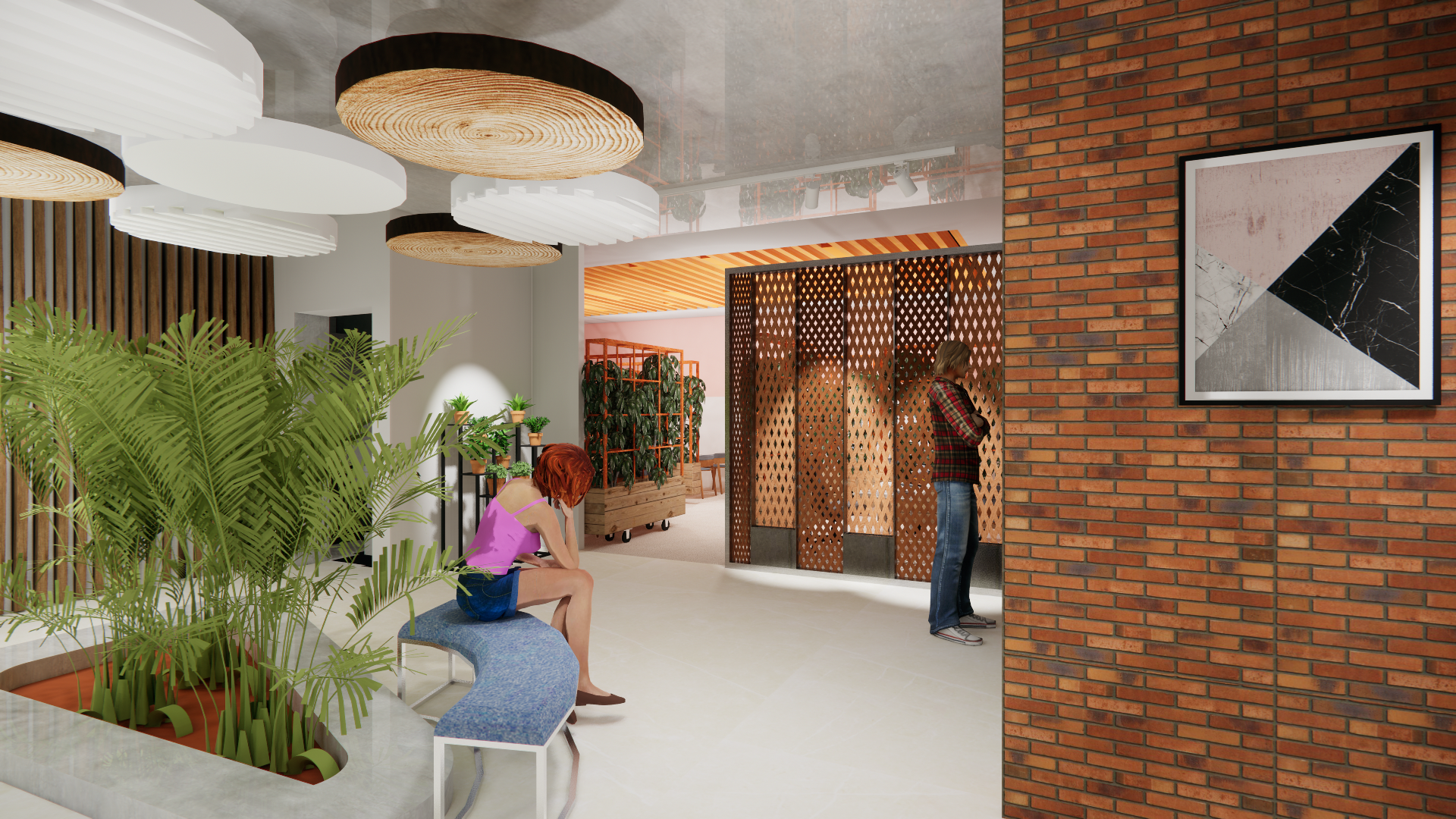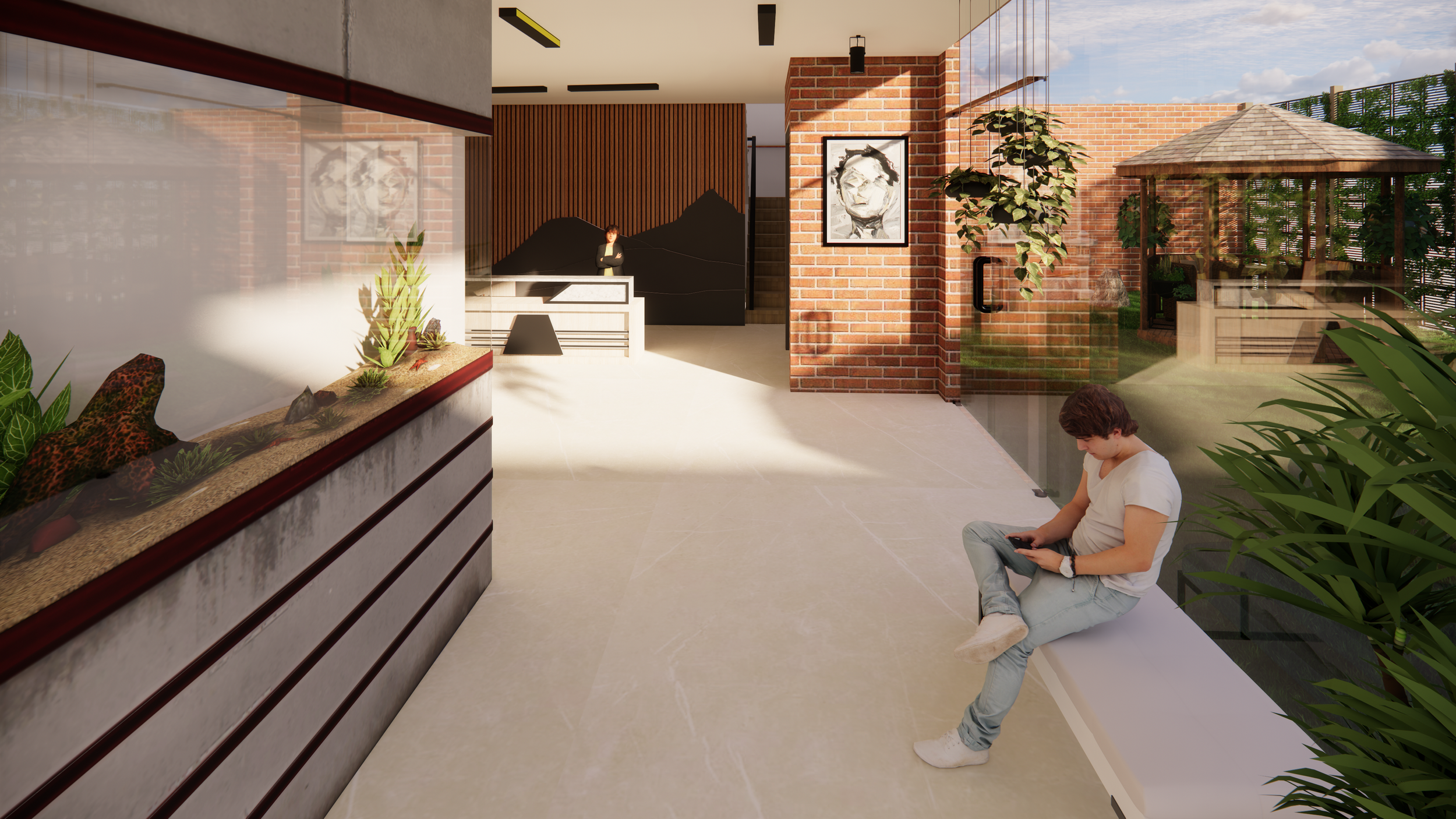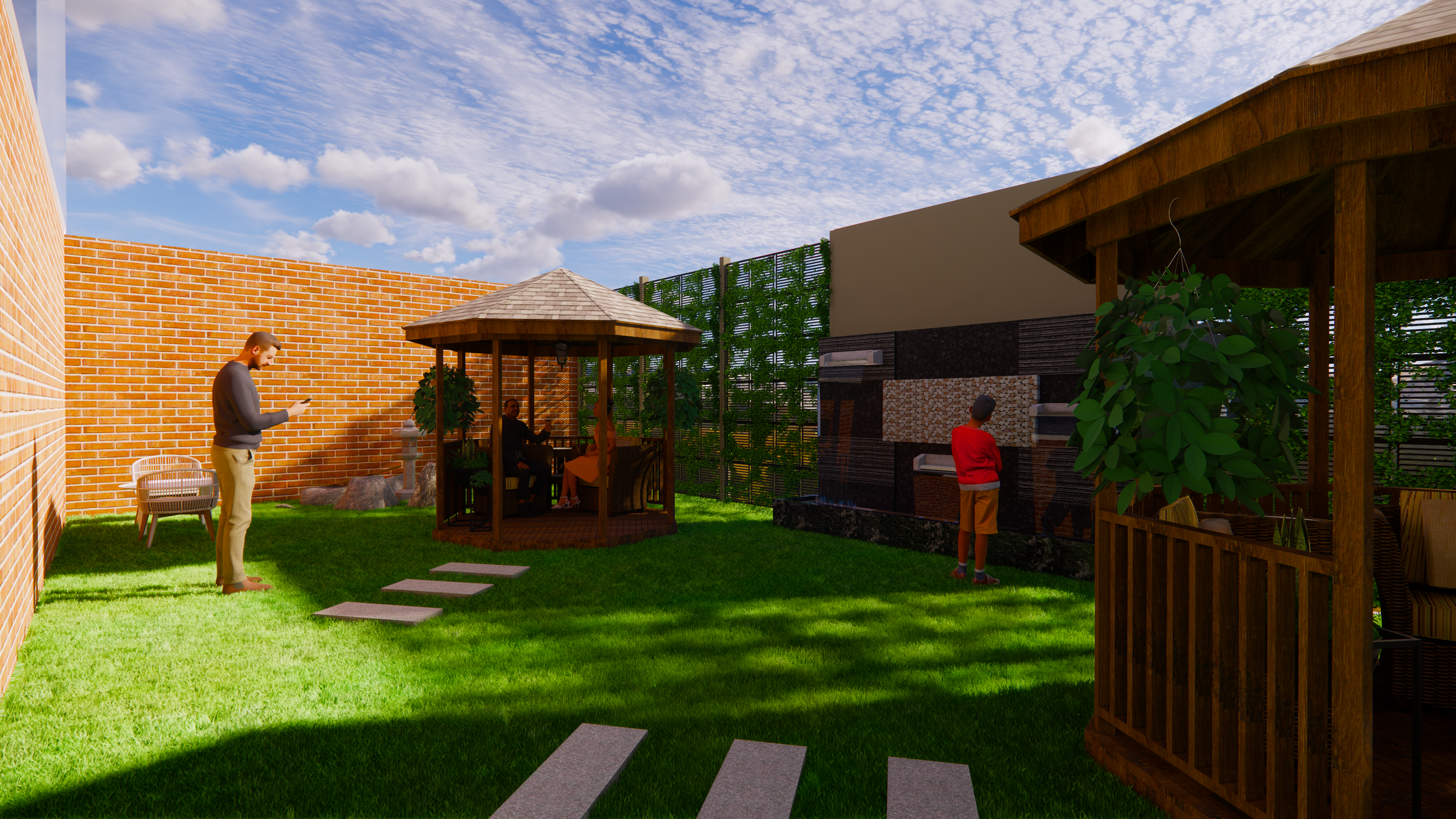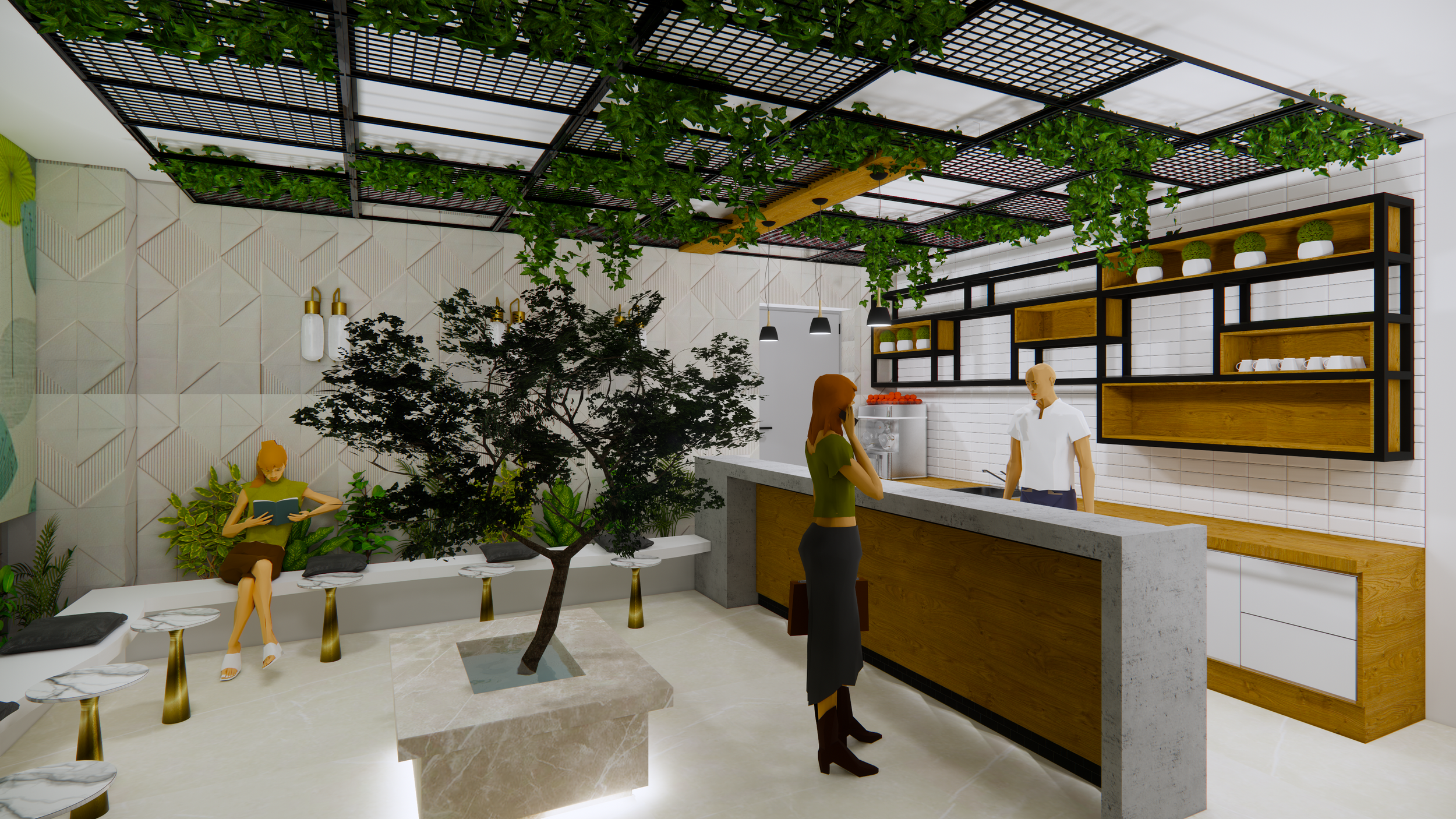Center for Trauma Informed Care
Tranquil Minds
Designing trauma-informed care spaces with biomimicry and sustainability focuses on creating environments that promote safety, trust, and healing for individuals who have experienced trauma, while also being eco-friendly. Key principles include ensuring physical and emotional safety through secure, calming spaces inspired by natural patterns and materials. Trust and transparency are fostered with clear signage and open layouts, and peer support is encouraged with communal and private areas. Inclusive design and flexible, multifunctional spaces support collaboration and adaptability.
Activities
Designing trauma-informed care spaces with sustainability and biomimicry involves open-air areas and natural elements inside buildings, promoting healing through nature. These spaces feature ample natural light, ventilation, and greenery, enhancing well-being. Activities like watering plants and feeding fish in aquariums foster a sense of calm and connection to the environment. This approach ensures safety, trust, and empowerment while integrating eco-friendly materials and practices, creating a restorative, supportive atmosphere for individuals recovering from trauma.
Spaces
Thoughtfully designed spaces, integrating natural elements and sustainable practices, provide a holistic approach to trauma-informed care, supporting the physical, emotional, and mental well-being of individuals.
Relaxation Room: A serene area with natural light, plants, and comfortable seating for unwinding and stress reduction.
Tea Room: A cozy, inviting space for social interaction and relaxation, featuring natural materials and calming aesthetics.
Sound Room: An acoustically designed space for sound therapy, incorporating natural sounds and music to promote tranquility and emotional healing.
These spaces foster a connection to nature, enhancing the therapeutic environment.
Tea Room- A calm, safe space for individuals to relax and feel supported, fostering a sense of security and well-being.
Zen Garden- Tranquil, mindful environment that promotes relaxation and emotional healing.
Hybrid Spaces
-
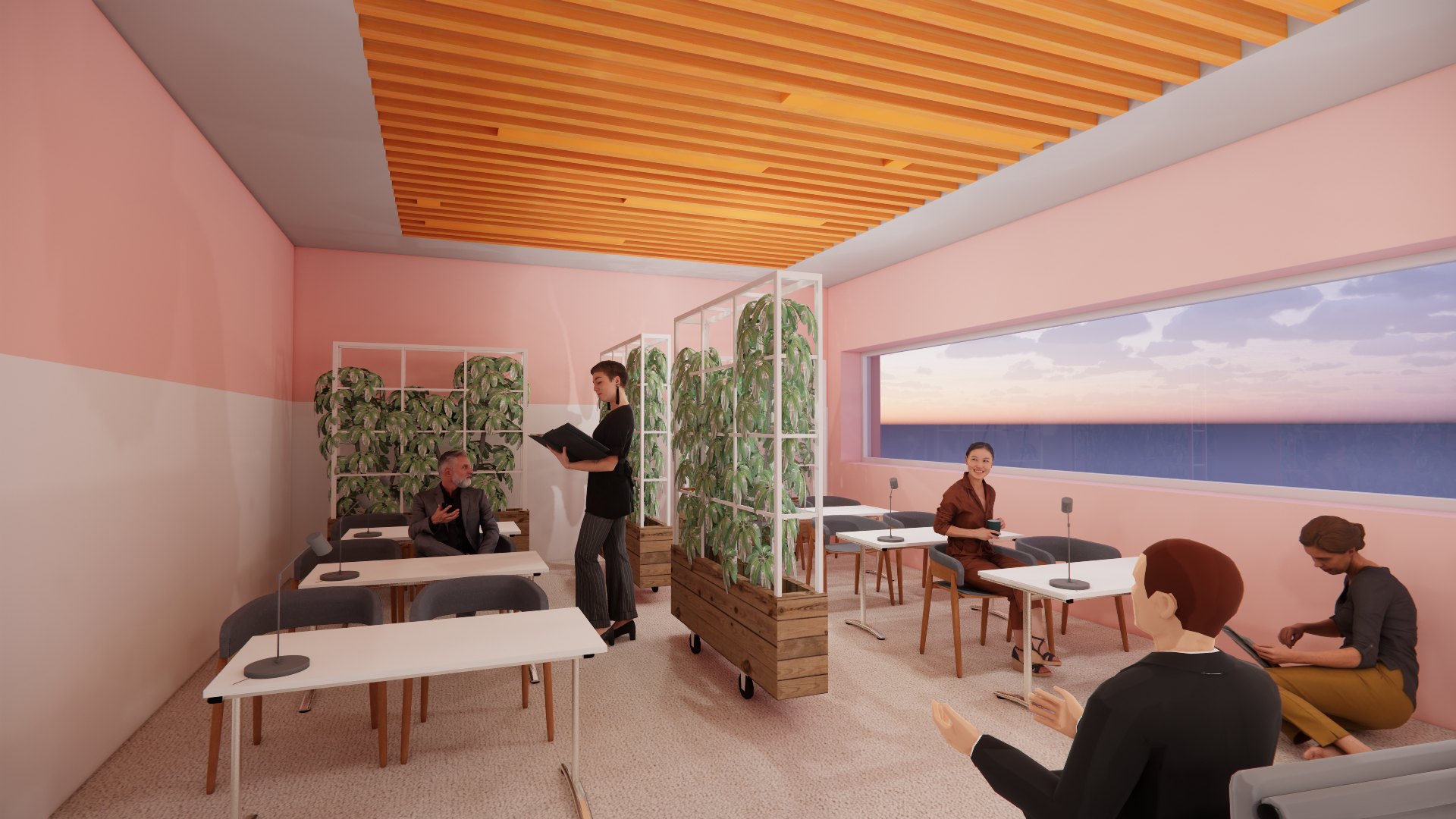
Safety and Comfort
Transforming rooms in trauma-informed care create safe, calming environments with soothing colors, soft lighting, and comfortable furniture to minimize stress and anxiety.
-
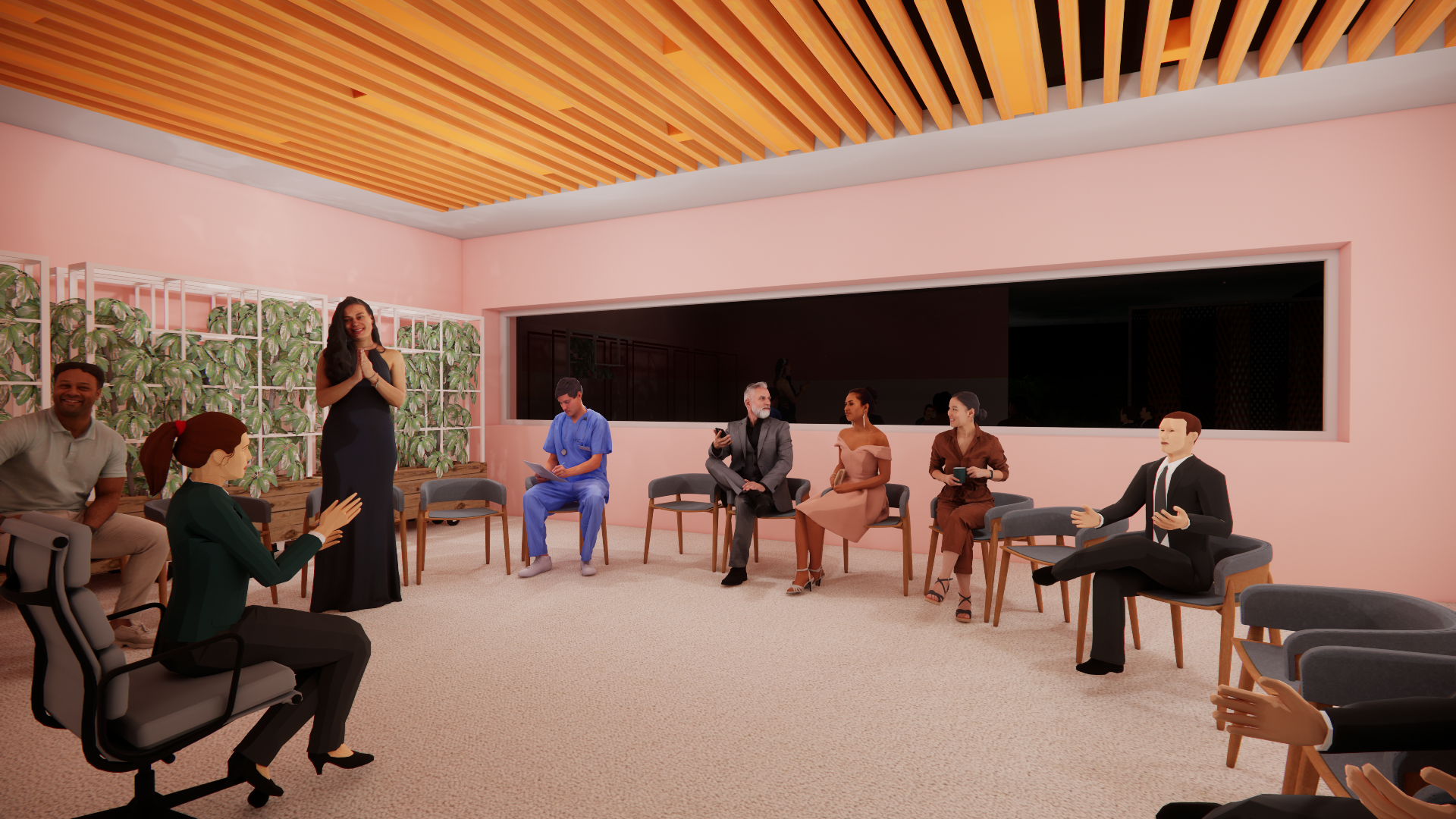
Sensory and Personalization
These rooms offer tools for sensory regulation and can be personalized to meet individual needs, supporting therapeutic activities and fostering emotional healing.
-
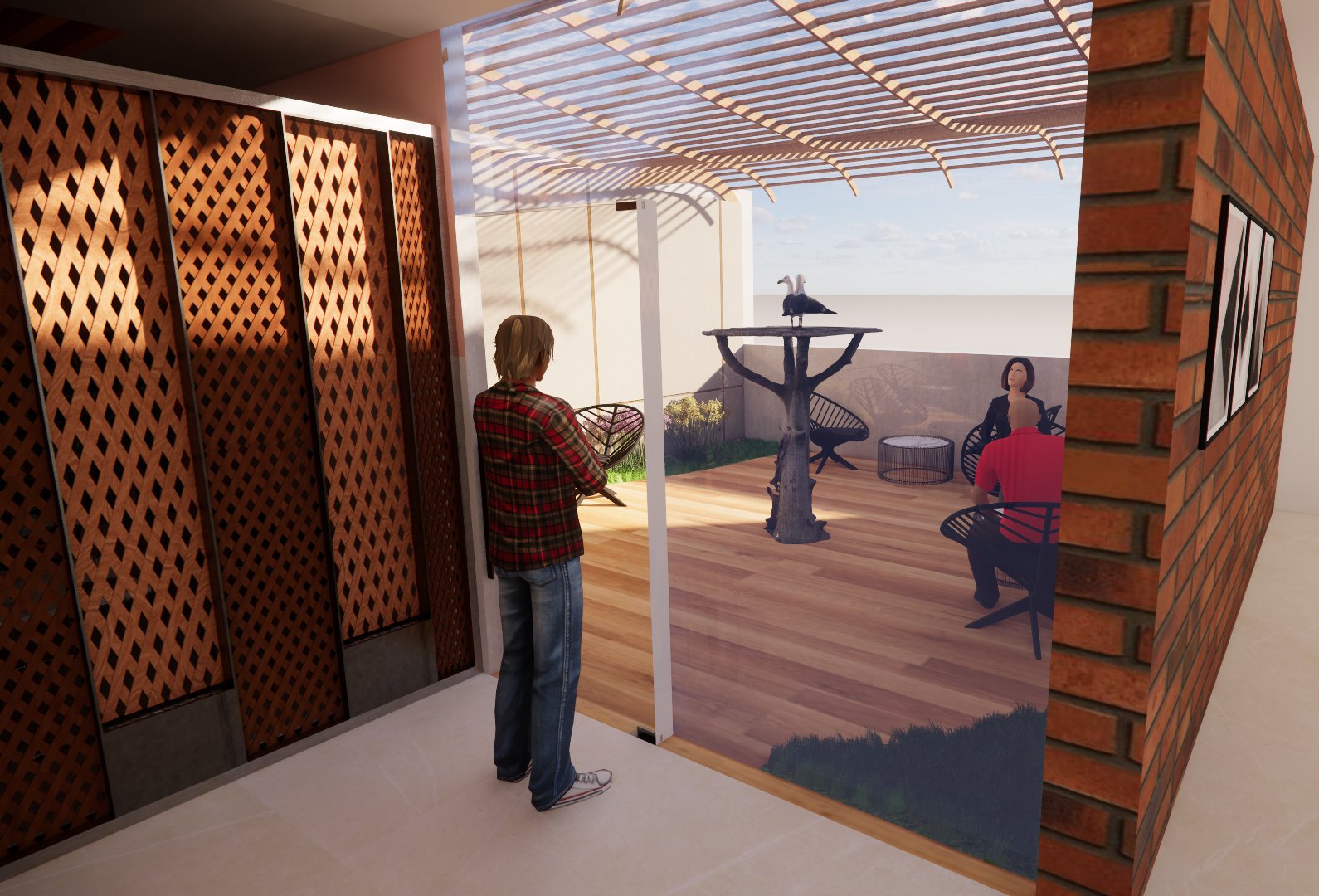
Therapeutic Engagement
They provide an environment conducive to therapeutic activities, such as art therapy, mindfulness exercises, or private counseling sessions, fostering a supportive and healing atmosphere.
-
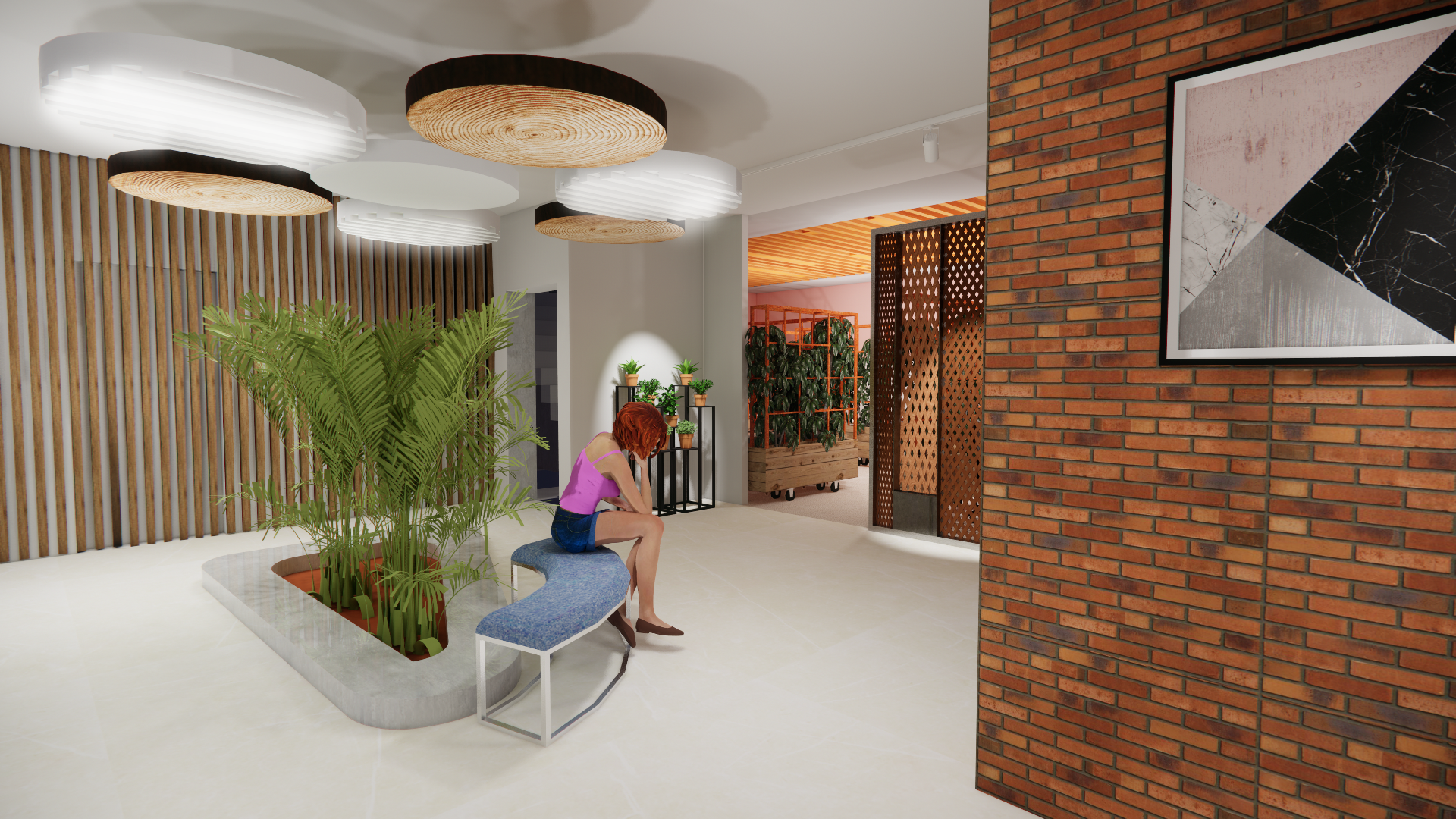
Flexibility
The design allows for personalization and adaptability to meet the unique needs of each individual, including adjustable furniture and decor that can be tailored to personal preferences and comfort levels.
